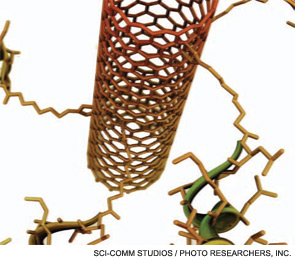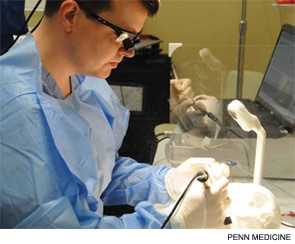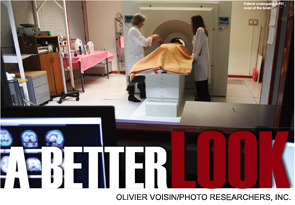Cloud computing is the delivery of your computing needs as a service rather than as a suite of products that you have to purchase and maintain. Why couldn’t we do that with an EMR or EHR for our patients?


Cloud computing is the delivery of your computing needs as a service rather than as a suite of products that you have to purchase and maintain. Why couldn’t we do that with an EMR or EHR for our patients?

The biggest gains in the future for surgical and therapeutic treatments of head and neck cancer will likely include the use of imaging techniques, radio-enhancers and drug delivery vehicles that are really, really small.

In May, Marcelo Antunes, MD, chief resident of otorhinolaryngology-head and neck surgery at the University of Pennsylvania, was able to practice bilobed flaps on pig’s feet at an ORL Rising Chief Boot Camp held at Penn Medicine Clinical Simulation Center in Philadelphia. While he had previously experienced medical simulation during his otolaryngology residency, the boot camp put the methodology in proper context for Dr. Antunes, who is particularly interested in facial plastics.
The large, roadside billboards advertised robotic surgery in bright, bold colors, something that struck David Eibling, MD, professor of otolaryngology at the University of Pittsburgh, as “fundamentally wrong.” Hospitals and physicians “should not be offering robotic surgery as a draw for patients,” said Dr. Eibling, who noticed the billboards while traveling through Florida earlier this year, “but rather as a potential tool to benefit the care of the patient.”

If you think your patients are finding your otolaryngology practice by looking in the Yellow Pages, think again. Increasingly, patients are deciding which physician to call by visiting the web and reading feedback on sites like vitals.com, healthgrades.com, lifescript.com and drscore.com.

When it comes to treating head and neck tumors, the more information that is available, the better. In the past, options for investigating these types of tumors and their aggressiveness were limited. But advances in optical imaging, positron emission tomography (PET) scanning, magnetic resonance imaging (MRI) and fluorescent and ultrasound imaging have some otolaryngologists excited about the prospect of getting a better look at head and neck cancer.

Neil Chheda, MD, assistant professor of otolaryngology at the University of Florida in Gainesville, realized a few years ago that nearly half of his patients on proton pump inhibitors were taking them incorrectly.

Need an incentive to implement an electronic health records (EHR) system in your practice? How about $44,000? That’s the amount the federal government is making available to eligible physicians as part of its effort to speed up the adoption of health information technology throughout the U.S. In fact, under the Health Information Technology for Economic and Clinical Health Act (HITECH Act), part of the American Recovery and Reinvestment Act of 2009, billions of federal stimulus dollars are flowing to medical practices throughout the U.S. to help physicians set up EHR systems.
The time for otolaryngologists to adopt electronic health records (EHRs) is now, practice management and information technology experts said at a session at the 2010 Annual Meeting of the American Academy of Otolaryngology-Head and Neck Surgery, held here Sept. 26-29.

It’s a common challenge: In a tough economy, do you spend to increase patient revenue or save to keep your practice afloat?